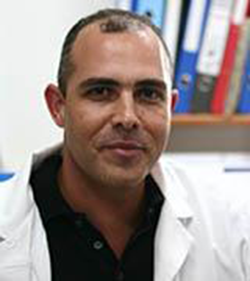Belmont, MA – In an unprecedented move, McLean Hospital, the largest psychiatric affiliate of Harvard Medical School, and Israel’s Weizmann Institute of Science, a world leader in brain research, are launching an alliance that will lead to further understanding of neuropsychiatric disorders and accelerate the development of corresponding treatments.
“The lack of understanding and under treatment of psychiatric and neurological disorders are significant public health concerns,” said Kerry J. Ressler, MD, PhD, chief scientific officer for McLean Hospital and professor of Psychiatry at Harvard Medical School. “The only way that we’re going to make the most progress in future treatments, preventions, and cures is to combine efforts across the world.”
Rony Paz, PhD, director of the Lab for Neural Mechanisms of Learning at the Weizmann Institute of Science, added, “The goal for the alliance is to demonstrate how collaboration can accelerate understanding of the mechanisms involved in brain disorders and translate that learning into care advances for patients and their families.”
The number of individuals affected by psychiatric illness has been consistently rising, exacting an enormous toll on individuals, family members, and health care systems. Certain disorders, such as depression, anxiety, and post-traumatic stress disorder (PTSD), pose a major challenge, as their care – diagnosis and treatment – is lacking in specificity and reliability.
To address these needs, McLean Hospital and the Weizmann Institute are combining their complementary basic, pre-clinical, and clinical research resources. Individually and collectively, McLean and the Weizmann Institute have wide-ranging expertise in genetics, cellular and molecular biology, systems physiology, bioimaging, and computational and behavioral neuroscience. By bringing all these resources together, the alliance will have the ability to efficiently take highly targeted research from “the bench to the bedside” – advancing research through each and every stage and translating that evidence into innovative clinical approaches that improve patient care.
The collaboration – spearheaded by Ressler and Paz – features three main initiatives: joint research projects where basic and pre-clinical researchers at the Weizmann Institute will collaborate with basic and clinical researchers at McLean; shared intellectual resources and training including visiting students, visiting scientists, and post-doctoral fellows; and collaborative meetings and symposia.
The alliance’s initial research projects will be focused on depression, anxiety, and trauma-related disorders. Three such collaborations are about to commence.

Prof. Alon Chen
Ressler’s research team at McLean will work with Professor Alon Chen’s research team at the Weizmann Institute to study the molecular mechanisms of fear-, stress-, and trauma-related disorders. This collaboration will focus on newly discovered and important processes related to non-coding RNAs that directly regulate hormonal systems, brain regions, and cell pathways involved in the stress response.
The second collaboration will pair a world-leading expert on the brain mechanisms of reward in animal systems with a world-leading expert on the brain mechanisms of reward and depression in humans. Together, they aim to identify promising leads for advancing treatment and prevention of depression and related psychiatric conditions.
The third partnership will combine world-leading experts in understanding the mechanisms of the pre-frontal cortex in animals. Their goal is to better understand how this brain region regulates emotion, which, in turn, could lead to a greater understanding of how brain circuitry is disrupted in depression, anxiety, PTSD, and other psychiatric conditions.
About the Weizmann Institute
The Weizmann Institute of Science in Rehovot, Israel, is one of the world’s top-ranking multidisciplinary research institutions. Noted for its wide-ranging exploration of the natural and exact sciences, the institute is home to 3,800 scientists, students, technicians, and supporting staff. Institute research efforts include searching for new ways of fighting disease and hunger, examining leading questions in mathematics and computer science, probing the physics of matter and the universe, creating novel materials, and developing new strategies for protecting the environment.
About McLean Hospital
McLean Hospital is the largest psychiatric affiliate of Harvard Medical School and a member of Partners HealthCare. In addition to providing a full continuum of psychiatric clinical care, McLean maintains the largest neuroscience and psychiatry research program of any private psychiatric hospital in the United States. McLean’s robust research program is backed by more than $40 million in funding from a variety of sources including foundations, private contributors, the National Institutes of Health, the United States Department of Defense, and the Defense Advanced Research Projects Agency. For more information about McLean, visit mcleanhospital.org or follow the hospital on Facebook or Twitter.
